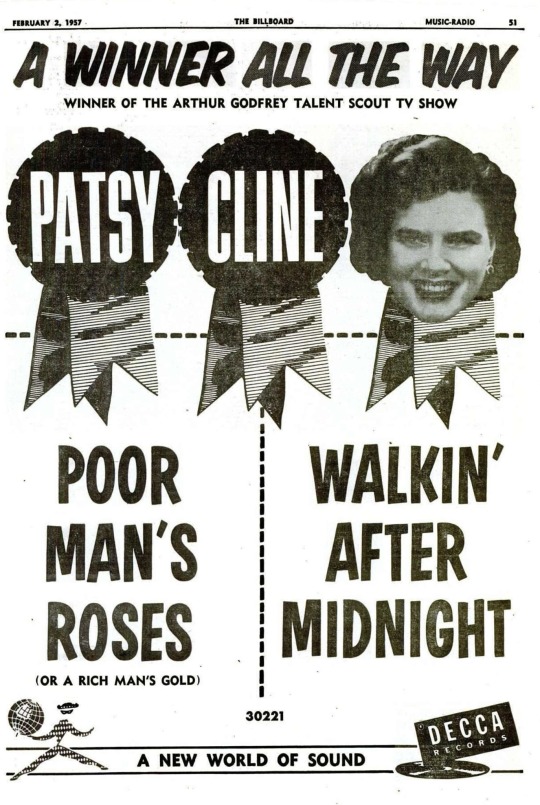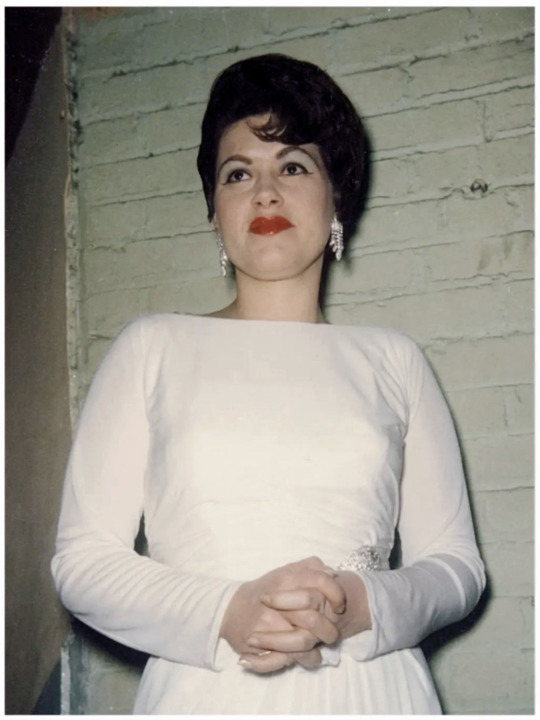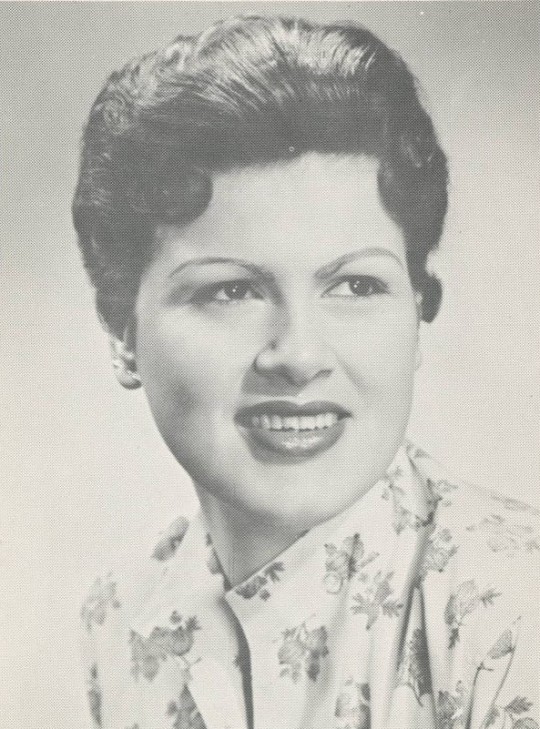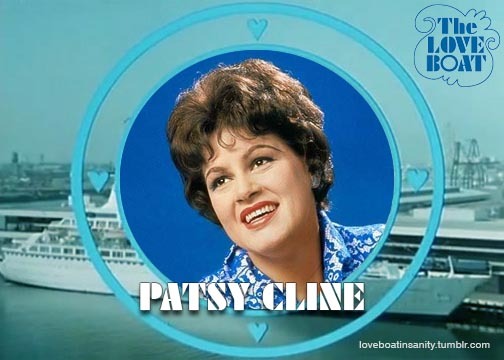#patsy cline
Text

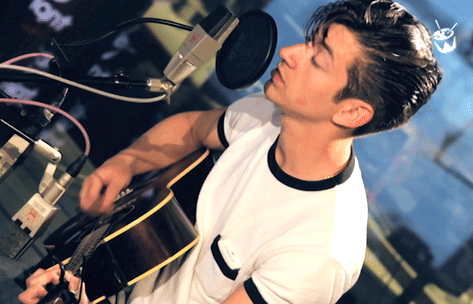
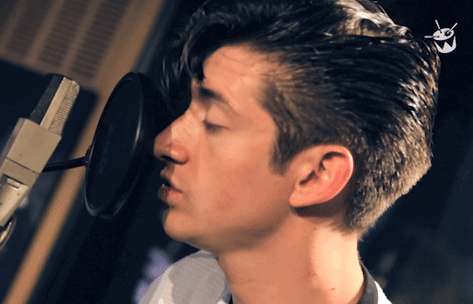
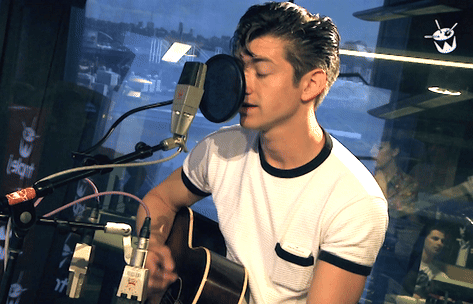
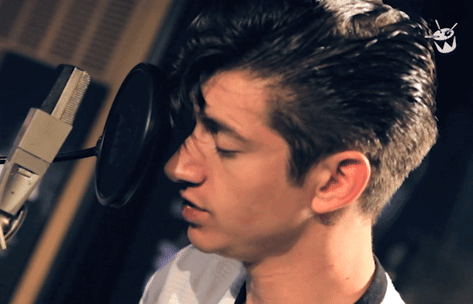
Well, I thought that I was just your puppet
You held on a string
#this performance holds a very very very special place in my heart#from the way he looks and sounds to the pack of cigarettes in his front pocket and the little red blotch on his cheek#he's just too beautiful for my silly little brain to comprehend 💔#faaaaaaave <3#alex turner#arctic monkeys#strange#patsy cline#my gifs
151 notes
·
View notes
Text
youtube
Such a classic. And someone who was taken far too soon 🕊🕊🙏🙏
160 notes
·
View notes
Text
country songs everyone should listen to at least once
Wichita Lineman by Glen Campbell
Leavin' On Your Mind by Patsy Cline
My Autumn's Done Come by Lee Hazlewood
Crying by Roy Orbison
The End of the World by Loretta Lynn
Here You Come Again by Dolly Parton
Welcome to My World by Jim Reeves
Don't Touch Me by Jeannie Seely
Make the World Go Away by Eddy Arnold
Folsom Prison Blues by Johnny Cash
Little Green Apples by Roger Miller
Me and Bobby McGee by Kris Kristofferson
folk version
#even if you say you listen to everything “except country”#glen campbell#patsy cline#lee hazlewood#roy orbison#loretta lynn#dolly parton#jim reeves#jeannie seely#eddy arnold#johnny cash#roger miller#kris kristofferson#these are a few of my favorite things
115 notes
·
View notes
Text
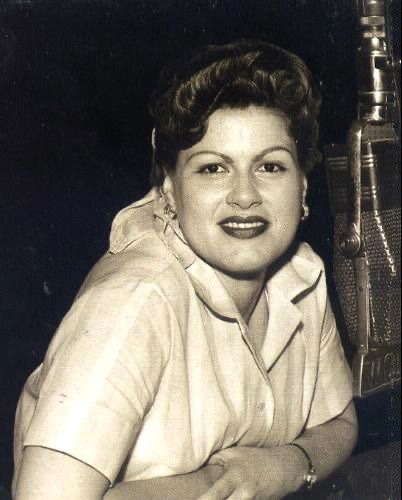
Patsy Cline (September 8, 1932 – March 5, 1963)
52 notes
·
View notes
Text
country music gets soooo much unnecessary hate tbh. like look me in the eyes and tell me you hate dolly parton's music. YOU WOULDN'T
#off topic but i just found out blake sheldon is married to fucking GWEN STEFANI???#anyway#when i say I listen to all genres i mean it#country music#dolly parton#linda ronstadt#patsy cline#music
100 notes
·
View notes
Text

I fall to pieces
Each time I see you again
I fall to pieces
How can I be just your friend?
You want me to act like we've never kissed
You want me to forget (to forget)
Pretend we've never met (never met)
And I've tried and I've tried
But I haven't yet
You walk by and I fall to pieces
-I Fall To Pieces Patsy Cline and The Jordanaires
#fellow travelers#hawk x tim#hawk x skippy#matt bomer#hawkins fuller#jonathan bailey#tim x hawk#skippy x hawk#tim laughlin#60s music#1960s music#patsy cline
34 notes
·
View notes
Text
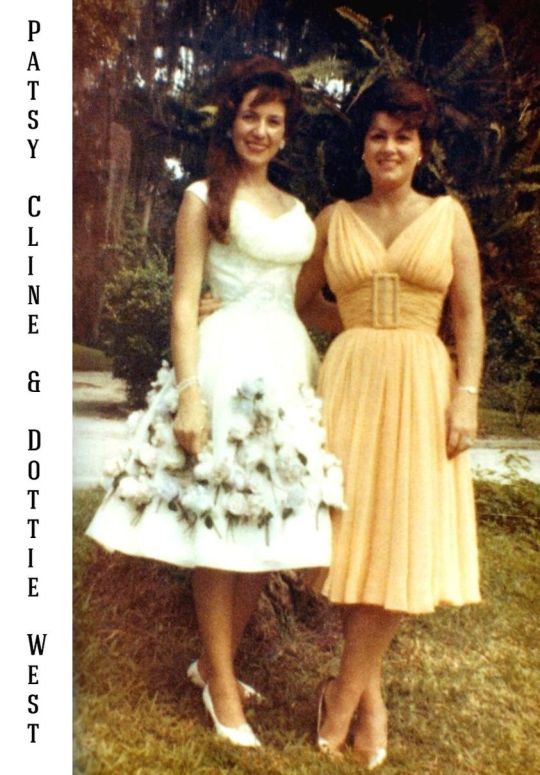
20 notes
·
View notes
Text
It’s Wednesday, my fellow Drewds! Going into the holidays I can’t help thinking about how our favorite Crew are celebrating the holidays. Can’t wait for all of the @secretsleuthexchange fics, gifsets, and fanvids we’re going to get!
In the meantime, I was inspired by a poll from @burningblake about which classic “standard” song best represents Nace (all excellent choices). I wound up making a Season 4 playlist of standards from the Great American Songbook, and a few other classic tracks, that represent their Season 4 journey for me. If you’re interested in this sort of thing, here we go!
I’ll be linking the Spotify tracks, but you should be able to find them all on Apple Music or YouTube. If you want a link to the full playlist, just hit me up here or on Discord.
1. The Nearness of You - This Hoagy Carmichael classic brings to mind Nancy and Ace’s inability to stay apart every time they’re near each other in Episode 401 🥺. I love the Ella Fitzgerald and Louis Armstrong duet, but I picked Norah Jones’ version from her 2002 debut album because it’s just so perfectly wistful.
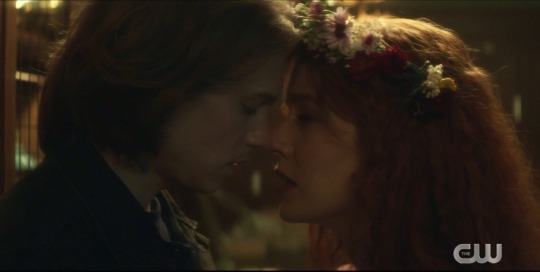
2. Is You Is or Is You Ain’t My Baby - this so so cool track was written by Louis Jordan, but I first heard it on Tom and Jerry (that’s the fighting cat and mouse cartoon in case you’re too young to remember them). I immediately envision the back and forth argument Nancy and Ace have throughout Episode 402 in the lyrics of this song. Ace just wants to know! I adore Joe Jackson’s version, but I went with Dinah Washington and Quincy Jones from 1956 because it is absolutely perfect.
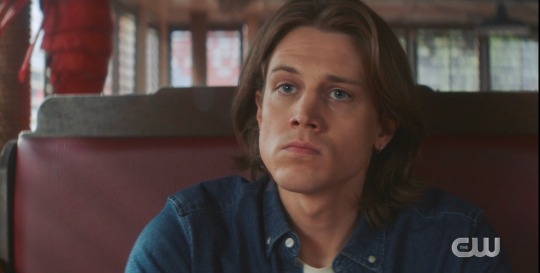
3. Night and Day - I like to imagine that Nancy and Ace stayed up all night talking at the end of 402. This song perfectly embodies their relationship at this stage 🥹. It was written by Cole Porter for Fred Astaire to sing in the original ‘The Gay Divorce’ Broadway musical (catch the film, a classic Fred and Ginger madcap musical romcom with such amazing dancing🕺🏼). But I had to go with Frank Sinatra from 1957’s ‘A Swingin Affair’ because it’s such a classic swing tune.
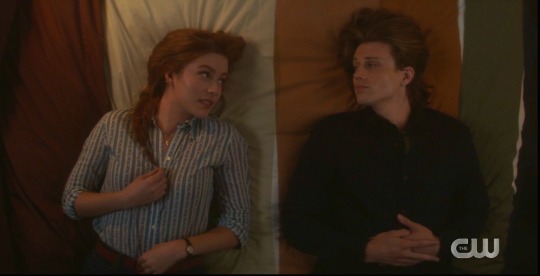
4. April in Paris - I’m not crying, you’re crying. Warning, there’s going to be a lot of crying in this playlist. Nancy telling Ace the story of her parents’ honeymoon in Paris in Episode 403, that shy smile when she tells him she always wanted to recreate it with someone, GAH. I had to pick the wonderful Sarah Vaughan with Clifford Brown on trumpet, simply exquisite. I’m going to have to take a break to sob quietly in the corner. “What have you done to my heart” indeed.
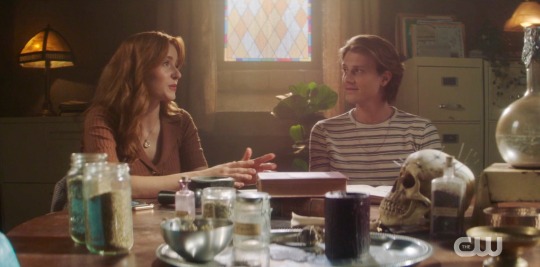
5. Fever - There was only one song, and only one version of this song, that matches the heat Nancy and Ace generated in the infamous Sigil scene. Peggy Lee burned the house down in 1958 with this track. “What a lovely way to burn” - Nancy can relate.
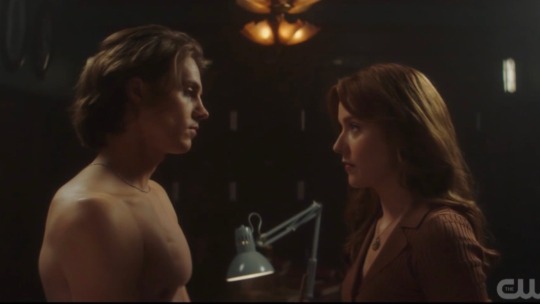
6. So in Love - Another genius Cole Porter song, written originally for Kiss Me Kate, but sung here by the incomparable Ella Fitzgerald (my personal hero). I had to pick it for THE KISS. They are just so in love 😭. A beautiful song and a beautiful rendition worthy of Nancy and Ace’s love. The fact that Kiss Me Kate is a musical about bickering exes who eventually find love again makes it even more perfect.
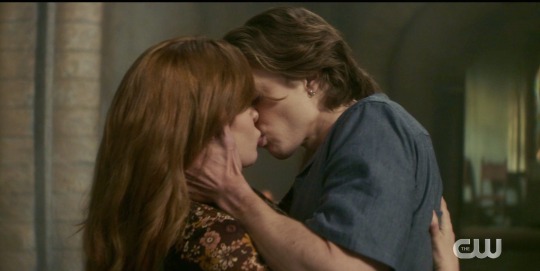
7. Crying - Roy Orbison, 1962. Need I say more? I may never recover from the final scene of 403. This song at least helps a little with the pain by naming it. Roy hits some insane notes in this song—the intensity matches both Nancy and Ace’s misery in that moment.
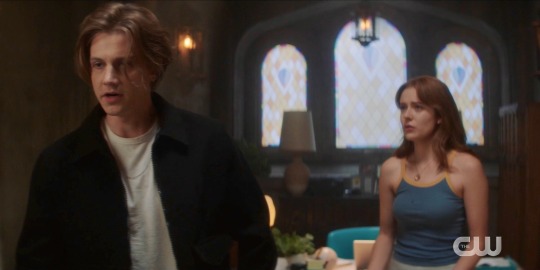
8. Good Morning, Heartache - More like Good Morning, Sorbet. In Episode 404, Nancy drowns her sorrows in her favorite frozen dessert to deal with the heartache of gaining and losing Ace. And no one does heartache like Billie Holiday, who recorded this song in 1946. Heartache haunts Nancy all throughout S4, and this track represents it perfectly.
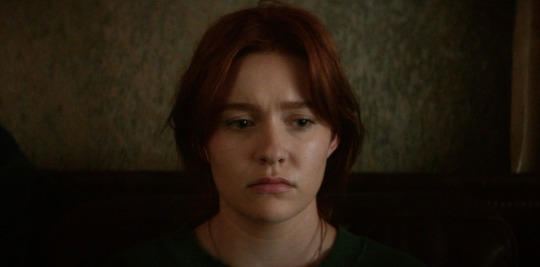
9. I had two contenders for the Nace scenes in Episode 405, both from the early 60’s. I Fall to Pieces, released by Patsy Cline and The Jordanaires in 1961, was a country crossover and Patsy’s number one hit—an incredible track that embodies Nancy’s emotions on seeing Ace again. She can’t even look him the eye at the beginning of the episode. Which brings me to my other choice, Walk on By, written by Hal David and Burt Bacharach, and famously sung by Dionne Warwick in 1964. Nancy puts up a brave front for most of this episode, but inside she wants to break down and cry.
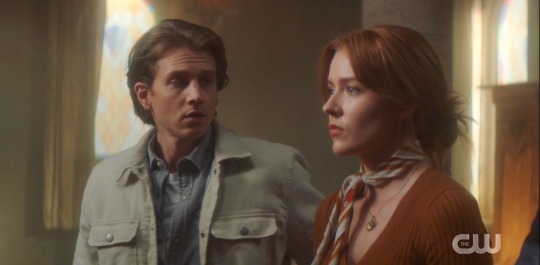
10. Episode 405’s speed dating montage is one of my favorite scenes of Season 4. Again I have two contenders—why should I have to choose? Harold Arlen and Johnny Mercer’s One For My Baby (and One More for the Road), as sung by Ella Fitzgerald (again ‘cause she’s the best), is an ideal soundtrack for Nancy’s increasingly desperate descent as she spends every would-be speed date talking about Ace and THAT KISS. Equally appropriate is Billy Strayhorn’s Lush Life—velvet-voiced Johnny Hartman and saxophonist John Coltrane’s 1963 track positively drips with ennui, elegantly over cocktails, of course. If you’ve never heard this one, please give it a listen. There’s even a mention of a week in Paris 🥺.
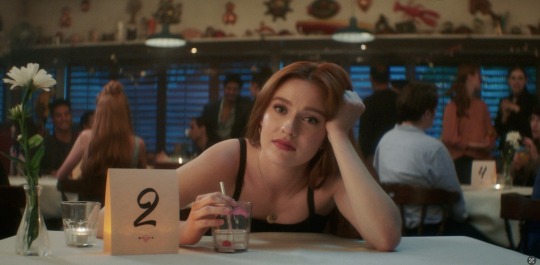
11. Episode 406, with the infamous Spider Prom, is Ace’s episode IMO—we finally get to see how he’s dealing with the loss of the love of his life and his best friend. He so desperately wants to somehow get back to being friends with Nancy, he resorts to spending countless hours with the help of S4 MVP Nick trying to catch Chunky Velez for her. Can’t We Be Friends? is the perfect song for him in this episode, gorgeously sung by Ella and Louis. That is, until he spies Nancy and Tristan dancing, and realizes what he can never have. Etta James’ blistering track I’d Rather Go Blind captures Ace’s feelings in that moment. He may have been the one to halt their attempts to brake the curse, but he’s hurting just as much as Nancy is.
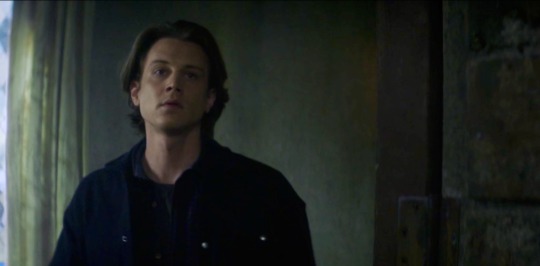
12. I’ve got two seminal songs to represent Episode 407. When Nancy realizes that Ace let Chunky go, and hears his admission that seeing her with Tristan hurt, it positively screams Cry Me a River. No, not the Justin Timberlake song 😅. This epic torch song was famously sung by Julie London in 1955, and expresses beautifully Nancy’s scorn at Ace’s hypocrisy even as she admits that he broke her heart.
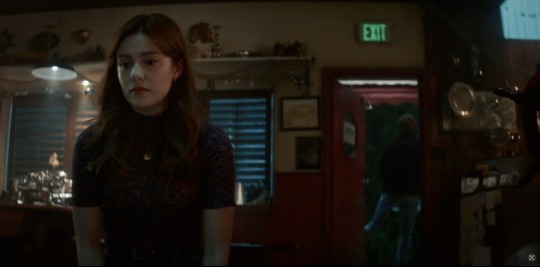
Their fight, and Nancy’s subsequent dashed hopes that Ace would call her bluff and come back, makes me think of Ev’ry Time We Say Goodbye. Another Cole Porter masterpiece sung by Ella. What can I say? You can’t top perfection:
Every time we say goodbye, I die a little
Every time we say goodbye, I wonder why a little
Why the gods above me, who must be in the know
Think so little of me, they allow you to go
I dare you to listen to this track without weeping over the Nace of it all. Enjoy!
Well, Drewds, we’re just past the halfway mark of Season 4 and this post is already a novel, so I’m going to stop here for now. What did you think of my picks? Any you think I missed?
I’ll do a Part 2 as long as I get a few notes on this one 😂 . It will feature more classic songs that represent Nancy and Ace as they head into the back half of the season. I know it’s going to get rough ahead, but I promise the music will be sweet.
Update: Part 2 is here!
#nancy drew#nancy drew cw#nace#ndcw#cw nancy drew#ace hardy#jazz#great american songbook#kennedy mcmann#alex saxon#nacesource#ndcentral#ella fitzgerald#louis armstrong#billie holiday#julie london#norah jones#dinah washington#etta james#patsy cline#roy orbison#author: pluckysidekick
27 notes
·
View notes
Text
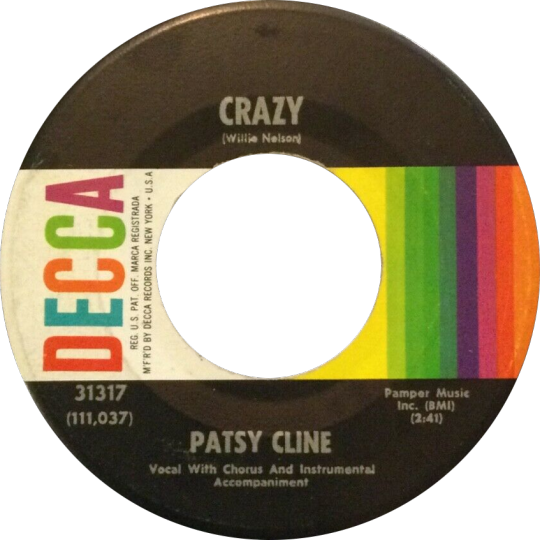
82 notes
·
View notes
Text

Route 704 ( Back Creek Road, Gore, Va. ) Birth Home of Patsy Cline.
Do you think it's haunted ?
#patsy cline#birthplace#legends#these haunted hills#ghostcore#ghost and hauntings#haunted#ghost and spirits#real ghost photos#haunting#ghost#appalachain mountains
34 notes
·
View notes
Text

Patsy Cline 1932-1963 Photo credit: © Corbis circa 1955
117 notes
·
View notes
Text
'Since its debut screening at Telluride, All Of US Strangers has been greeted with critical raves, multiple awards nominations and filmgoers moved to tears by its quietly devastating story. Set in modern London, though featuring periodic detours to one of its southern suburban towns, it tells of a screenwriter, Adam (Andrew Scott), who tentatively begins a relationship with a charismatic neighbour, Harry (Paul Mescal).
As the romance develops and deepens, Adam is drawn back to the place where he grew up and the suburban childhood home he left when he was 11 after his parents died in a car crash. There, both his mum (Claire Foy) and dad (Jamie Bell) appear to still be alive, just as he remembers them from decades earlier.
Writer/director Andrew Haigh (Weekend, 45 Years) used the home he himself was raised in as the location for the scenes featuring Adam and his parents. It lends a deeply personal resonance to a film that received seven prizes at December’s British Independent Film Awards and is now in contention for six Baftas, including for outstanding British film.
Screen International spoke to the director about four key scenes from the film - spoilers follow.
Adam and Harry meet for the first time
The scene: When a fire alarm drives him from his tower block apartment, Adam sees Harry looking down from a window. Soon after, a drunken Harry turns up at Adam’s door. The pair have a flirtatious conversation, but Adam turns Harry away.
Andrew Haigh: “We found it complicated to find a building to double for Adam’s tower block, because they are usually owned by multinationals who don’t want you to film in them. But we found a building in Stratford, on the edge of London, which suited a person like Adam who has locked himself away from the world and has a routine that keeps him in that aloneness.
“We did the interior of Adam’s apartment on a soundstage, and had big LED panels with the outside of London projected on them. I wanted the film to have a sort of strangeness from the very beginning that felt slightly shifted from reality, and those LED panels gave it that. Director of photography Jamie Ramsey was able to do something slightly different with the focus - the deep background outside is more in focus than it ever would be if you were shooting in a real apartment. That was enormously useful in bringing a slight oddness to being in this room.
“When Adam opens the door on Harry, we first see Harry’s face in a mirror on the wall. There are a lot of mirrors and reflections in the film, and I like it here because it’s as if Adam is being faced with a reflection of himself — someone else who is intensely alone and is reaching out and looking for help. It was a hard scene for Paul — he’s got to play drunk, be flirtatious and sexual, but also some desperation has to be leaking out underneath the surface. It can’t just be a ‘meet cute’, there has to be a reason why Adam shuts the door on him.
“I can’t tell you how many different sounds we listened to with Joakim Sundström and the sound team. There are so many levels of sound going on within this scene — different air vents, different tones, the deep rumble of a lift coming up and disappearing. I love also the moment of silence between them when it gets really quiet. If people are eating popcorn in the cinema, they are going to have to stop eating at that moment.
“There was a bit of dialogue at the end of the scene where Harry got quite angry with Adam. But it just didn’t feel right in the end, it felt like it was pushing it too far in one direction.”
Adam comes out to his mother in the kitchen
The scene: Returning to his childhood home in Sanderstead, Croydon, for the second time, Adam finds his mum alone. Over tea and flapjacks in the kitchen, he tells her that he is gay. Her discomfort and judgmental attitude make for an uncomfortable encounter.
Haigh: “What is important about this scene is that it is doing two things. It is about a son telling his mother that he is gay, but it is also about an adult living now being reminded of what it felt like to be gay in the 1980s. I remember growing up at that time [Haigh was born in 1973] and how Adam’s mum feels is how everybody thought about gay people. It was a rough time to be gay, and suddenly Adam is back there again - all this icky pain starts to bubble up as his mum is talking.
“I didn’t want to demonise the mother. It is clear to me, and Claire plays it exactly like this, that she absolutely adores her son. But she lives in a time when her opinions have been formed and forged by the culture she lives in. Claire knew she had to be that person from the ’80s, and she absolutely threw herself into how her character would have felt. It’s a hard thing to do, and she did it beautifully.
“The role of tea is paramount and we talked a lot about it. When does the mother pour? When do they just hold their cups? When does Adam play with the flapjacks? They’re all fundamental to understanding the subtext. The mother has made flapjacks, something he always loved as a kid, and at the end she decides not to eat them. That’s quite brutal, as if this beautiful, nostalgic thing has been fundamentally altered.
“Costume designer Sarah Blenkinsop wanted all the costumes to have texture. You know what the teal velour tracksuit Claire wears in this scene feels like to touch, and that is another way to drag you back into the past. The whole film is trying to find ways to transport us back to a past, and if your mother had worn something like that, it would be something that you would always remember. The costumes and the way the house is decorated are to remind the audience we are in the middle of the 1980s.
“The house we shot in was not a big house. It’s a small, semi-detached house with a whole crew in there trying to film the scene. But I love the limitations because it means no-one can be in the room apart from you, the actors, the camera [operator] and the boom op. Everyone else is away, and it makes it feel so intimate.”
Adam and Harry go to the Royal Vauxhall Tavern
The scene: After having sex in Adam’s apartment, Adam and Harry go to a nightclub. There they drink, dance and snort ketamine. The evening becomes dreamlike and euphoric as the drug kicks in. They kiss passionately on the dancefloor.
Haigh: “Before this, there is a beautiful moment with Adam and his dad where you feel a deep connection and that something has been solved between them. There is a lightness to Adam at this point; a burden has been lifted and he wants to go out and show the world he’s in the early stages of a romantic relationship.
“I used to go to the Vauxhall Tavern all the time in the 1990s. There was a night called Duckie on Saturday night, which I was always going to. I lived in nearby Kennington at the time and it was a special place. It was an alternative venue that played such a wide range of music, so for me it felt the only choice to shoot in.
“Club scenes are difficult to get right, and the only way to get them right is to feel like you are in a club — that it’s late at night, you’re sweating and you’ve been dancing too long. So we played music for ages, and everyone was dancing before the camera was even rolling. We shot during the day in the height of summer with 150 people, so it was really hot and sweaty. But it needed to be loud and feel like you were being pushed from one side to another.
“The lighting in the club was limited, so we put in lots of vibrant pinks and deep purples. There is something sexy and dark and erotic about that colour scheme that speaks to gay clubs of the past. The scene feels so different from the rest of the film, but it also recalls colours that we use elsewhere. I love how the lighting scheme develops and how we start to make it stranger and a little bit uncomfortable.
“I don’t think we planned the shot where Adam and Harry kiss, with the light streaming behind them. But I wanted them to kiss each other and the light was behind them and it felt like such a magical moment. It’s like the whole world disappears around them and you’re just focusing on this beautiful, sensual, wondrous moment. They’re gay people in the safe space of a queer club and they can be exactly who they are, in public.
“There’s no point pretending the club scene is not associated with drug-taking — it has been since the dawn of time. You may as well be matter-of-fact about that, rather than try to make a moral argument.”
Adam and his parents go to the High Hat diner
The scene: Sensing their time together is drawing to a close, Adam goes with his parents to an American-themed diner he enjoyed visiting as a child. There they ask about how they died, before departing.
Haigh: “I knew there would have to be a goodbye scene. This film would make no sense if the parents were constantly going to be there. They’ve come back to help Adam, and he has got to the stage where he doesn’t need them anymore.
“Beginning the scene with ‘If I Could See (Through The Eyes Of A Child)’ by Patsy Cline was a bit of a random choice. I wanted a song that spoke to the Americana of the location — a theme restaurant in a brutalist shopping centre that was actually a TGI Fridays. When I was a kid, the height of glamour was going to a Happy Eater or Little Chef by the side of a motorway, which were the British version of American diners. The most exciting moments from when you were young can be so strange when you look back at them.
“I love the triangular composition, where you see all three heads. You’ve got the parents on both sides of Adam, helping him move forward like angels on his shoulder. They’re like an extension of Adam’s mind, and of course you could see the film that way if you wanted to - that all of this is only existing within his head.
“We had a lot of questions about how the parents would vanish. I wanted it to be simple because that is what happens when you lose someone. We used an optical effect to have the light in their eyes gently fade. And then they are gone, and it’s just Adam alone with three milkshakes on the table and nobody else around him.
“Crying on camera is a strange thing — it has to feel real and honest or it looks like it’s been forced. With Andrew, there was no holding him back; there was nothing he could do but cry in that moment. It was an emotional scene to shoot and it took some stamina. We spent a whole day on it, and half of the crew were crying.
“Emilie Levienaise-Farrouch did a wonderful job with the music. She was smart in saying we didn’t want much in this scene, and that overplaying it would make it far too sentimental. It is on the edge of sentimentality anyway, but you’ve got to stay on that edge; you can’t fall over the top of it. It was a real balancing act, and I think the way her score builds and shifts and rises is really powerful.”'
#Emilie Levienaise-Farrouch#Andrew Haigh#All of Us Strangers#Andrew Scott#Paul Mescal#Jamie Bell#Claire Foy#Royal Vauxhall Tavern#Sarah Blenkinsop#Jamie Ramsay#Joakim Sundström#Patsy Cline#If I Could See (Through The Eyes Of A Child)
14 notes
·
View notes
